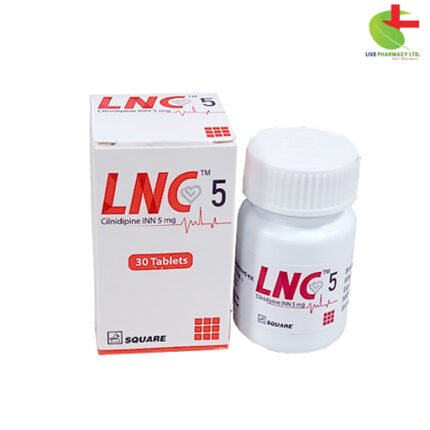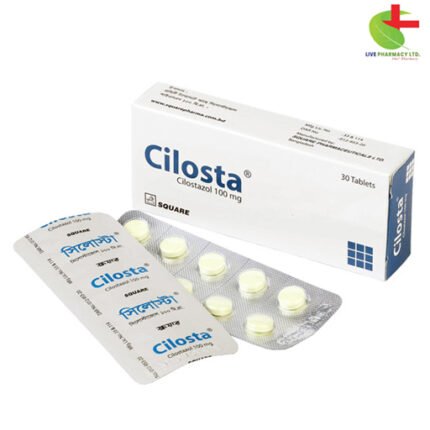LNC 10
270.00৳ Box
- Cilnidipine: Effective medication for hypertension management
- Provides protection to vital organs from elevated blood pressure
- Suitable for diverse patient groups: elderly, diabetics, and those with chronic kidney disease
- Acts by targeting calcium channels in vascular smooth muscle and sympathetic nerve cells
- Promotes vasodilation and inhibits norepinephrine release, reducing blood pressure
- Recommended dosage: 5-10 mg once daily, minimizing adverse effects
 Brand
Brand
|
Square Pharmaceuticals PLC |
|---|---|
 Generics
Generics
|
Cilnidipine |
Indications
Cilnidipine (LNC) is recommended for managing hypertension to safeguard vital organs. Its efficacy extends notably to elderly individuals, diabetics, and those with albuminuria, as well as patients grappling with chronic kidney disease.
Hypertension, characterized by elevated blood pressure, exerts undue force on blood vessels, potentially leading to vascular damage.
Pharmacology
Cilnidipine operates as a dihydropyridine calcium-channel blocker, binding to the dihydropyridine sites of L-type voltage-dependent calcium channels. This action inhibits Ca2+ influx across vascular smooth muscle cell membranes, inducing vasodilation. Additionally, it targets N-type voltage-dependent calcium channels in sympathetic nerve cell membranes, impeding norepinephrine release. Consequently, heart rate reflex elevation post-blood pressure reduction is suppressed.
Dosage & Administration
For adults, the recommended dose of 5-10 mg is taken once daily after breakfast, with a maximum daily dosage of 20 mg. Pediatric usage lacks established safety parameters, and in the elderly, cautious initiation at 5 mg is advised due to heightened susceptibility to hypotension.
Interaction
Avoid concurrent usage with other antihypertensives, hypotension-inducing antipsychotics, quinidine, carbamazepine, phenytoin, rifampicin, cimetidine, and erythromycin.
Contraindications
Cilnidipine is contraindicated in patients with known sensitivity to it or its excipients, as well as those with cardiogenic shock, recent myocardial infarction, acute unstable angina, or severe aortic stenosis.
Side Effects
Common side effects encompass dizziness, flushing, headache, hypotension, peripheral edema, palpitations, gastrointestinal disturbances, increased micturition frequency, lethargy, eye pain, and depression.
Pregnancy & Lactation
Avoid Cilnidipine administration during pregnancy or for potentially pregnant individuals. Nursing mothers should also refrain from its usage, but if necessary, lactation should be discontinued.
Precautions & Warnings
Exercise caution when administering Cilnidipine to patients with severe hepatic dysfunction or a history of adverse reactions to calcium antagonists. During discontinuation, gradual dosage reduction under close supervision is recommended.
Therapeutic Class
Cilnidipine falls within the therapeutic class of calcium-channel blockers.
Storage Conditions
Store below 30°C, shielded from light and moisture, and out of children’s reach.













Reviews
There are no reviews yet.